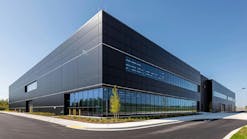Security integrators should always be on the lookout for new revenue sources. One of the most potentially lucrative opportunities may be just a small step beyond what many are already doing on a daily basis.
Video, access control, telephone and other systems are becoming cloud-based, much the same way data storage has been for years. Integrators are already creating and often managing their part of a client’s IT network. Why not manage it all?
It is almost impossible today to design and install a security system that does not require a network. Granted, managing an entire IT network is not easy and may not be an option for all integrators; however, the switches and routers used to create a video network with IP-based cameras are the same components used in a data network. If an integrator created a second network with desktop computers replacing the cameras, those two networks would look quite similar.
There is a widespread need for integrators capable of managing an IT network. Most small businesses with 75 or fewer employees do not have an IT department. They require service, but for them it is more cost-effective to outsource the function. These companies should be an integrator’s prime targets.
Based on the degree of work provided, managed IT services can become a significant source of RMR, and it is easy to add related services to multiply the revenue. For example, periodic system health checks help ensure equipment is operating at near 100% uptime. Regular system backups make sense with cybercriminals looking to hack into networks and hold the data hostage for ransomware.
It is the integrator’s job to help clients understand the demands new security and other devices place on the network’s limited bandwidth. Many small businesses add technology without a clear need – we have seen clients buy equipment, put it in a closet and be totally unaware that it failed weeks or months earlier. Also, do not overlook larger organizations with existing IT departments. The existing IT staff may handle the data, but still be interested in an integrator managing the impact of security equipment on the network.
Finding IT-savvy Talent
One of the biggest challenges to this business model is finding network-savvy employees. We look for engineers who understand the basics of network maintenance – and the good news is there are a lot of people available with these skills, although they often do not know much about the security side of the business.
We can quickly bring them up to speed on the products we sell and install, since they are almost all software-based. For us, this is a better approach than hiring people who know how to pull cable and then trying to teach them networking skills.
There are different levels of networking talent required. The entry level, or desktop support, is tier one. Tier-one talent can often be found at trade schools and community colleges. They can start on the desk and move up as they gain experience.
Tier-two staff members understand server architecture, routing, switching and will do much of the more technical troubleshooting and support.
Tier-three staff are high-level network specialists with certifications from Cisco, Microsoft and others. These employees are paid handsomely but are necessary to serve as project managers.
It is also important to have a knowledgeable sales team. Get them involved in these projects; however, there is no need for them to speak comfortably at the router level with an IT director. We approach selling managed IT services as a team event. When calling on a potential new client, we pair our sales staff with a systems engineer.
Evolving IT Services
The future should see even more opportunities for integrators looking to manage IT networks. We are beginning to integrate supervisory control and data acquisition (SCADA) systems used to monitor and control a plant or equipment in telecommunications, water, waste control, energy and other industries.
We have also integrated programmable logic controller (PLC) systems that continuously monitor and control manufacturing processes. Additionally, security integrators may soon be asked to manage networks with other building systems such as HVAC and lighting.
Chris Krajewski is the general manager of the Central Valley office of Fremont, Calif.-based systems integrator Ojo Technology. Learn more at http://ojotech.com.



